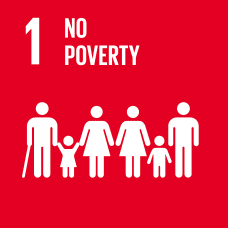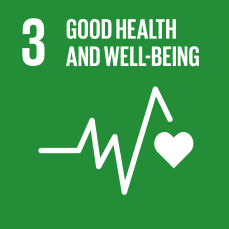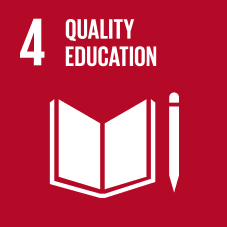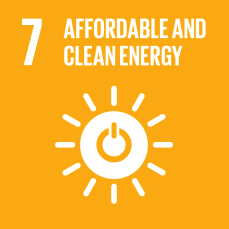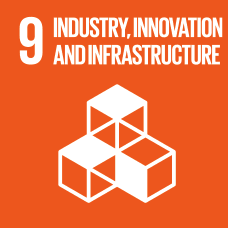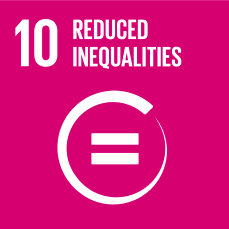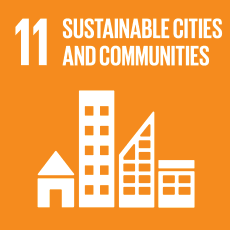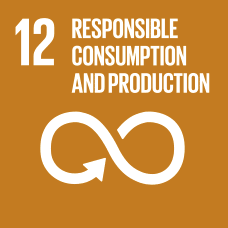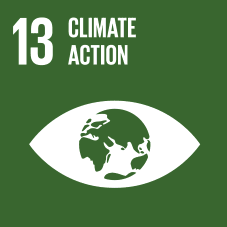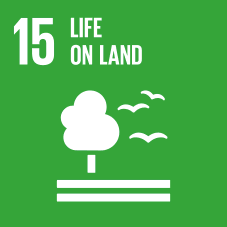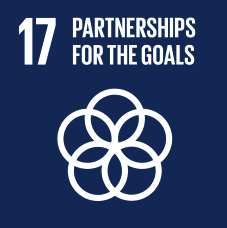| PGNiG Group’s commitment to the United Nations Sustainable Development Goals |
|
Goal
|
Global goal description
|
PGNiG Group’s activities supporting the achievement of the goal (examples of business activities, initiatives and CSR projects)
|
|
|
Goal 1: End poverty in all its forms everywhere
|
-
The PGNiG Group is a leading employer in Poland with a headcount of almost 25,000. Ranked among Poland’s largest corporate groups, its operations contribute to the country’s GDP growth (indirect impact).
-
It provides universal access to energy (natural gas, electricity and heat) in Poland (indirect impact).
-
Projects run by the PGNiG Ignacy Łukasiewicz Foundation supported by PGNiG Group Companies, including PGNIG’s Debt of Gratitude project to support veterans.
-
Christmas fundraising campaigns
|
|
|
Goal 3: Ensure healthy lives and promote well-being for all at all ages
|
-
Ensuring diversified, flexible and reliable gas supplies at competitive prices is a prerequisite for shifting Poland’s energy mix towards a low-emission economy (replacing coal with natural gas and other fuels, natural gas as a balancing fuel essential to the growth of renewable energy sources) (indirect impact).
-
The PGNiG Group has initiated a value chain restructuring exercise in its Generation segment – new investments in gas-fired units and adaptation of generating units to BAT requirements contribute to reducing CO₂ emissions across the Group.
-
Launch of operations in the renewable power sector – PGNiG Group’s direct contribution to the development of a low-emission economy.
-
The measures aimed at reducing low-stack emissions and smog include expansion of the national gas network, replacement of old heating systems with gas boilers, and promoting gas mobility based on CNG and LNG, with hydrogen fuels to be added in the future.
-
Promoting gas mobility by supplying gas, a green alternative to diesel oil, and building bus filling stations in Tarnów, Tychy, Rzeszów, Łomża, Suwałki, Bielsko-Biała, Kielce, Lublin, Warsaw and other locations – PGNiG OD.
-
Implementation of a system analysing satellite images of gas pipelines in order to detect potential leakages – PSG.
-
Support provided to healthcare institutions in the form of targeted grants awarded to specific facilities and projects, including through the PGNiG Foundation.
-
Health Day at PGNiG − promoting disease prevention among employees.
-
Blood donation drives organised by PGNiG Group Companies.
|
|
|
Goal 4: Ensure inclusive and equitable quality education and promote lifelong learning opportunities for all
|
-
The PGNiG Group shows commitment to the continuous development of its staff, for instance through the PGNiG Training Management System.
-
Providing financial support to or directly managing museums of the history of the oil and gas industry – the Warsaw Gasworks Museum (PGNiG), the Museum of Gas Industry in Paczków (PSG) and the Ignacy Łukasiewicz Museum of Oil and Gas Industry in Bóbrka (PGNiG SA and the PGNiG Foundation).
-
The Virtual Gas Industry Museum, a platform to promote the knowledge of the past, present and future of the oil and gas industry – PSG, PGNiG (a patron)
-
GeoTalent – an educational programme promoting industry knowledge among students
-
Educational projects for children, including the Miner project for schools and kindergartens, Exalo Camp Kids, Be Like Ignacy (educational programme for schools of the PGNiG Foundation)
|
|
|
Goal 7: Ensure access to affordable, reliable, sustainable and modern energy for all
|
-
The PGNiG Group seeks to ensure reliable and flexible gas supplies to Poland at competitive prices. This is a starting point for the achievement of objectives outlined in Poland’s Energy Policy until 2040, including the decarbonisation and CO₂ emission reduction goals set out in the Paris Agreement (reducing the share of coal in the energy mix and natural gas as a balancing fuel essential to the growth of renewable energy sources) (indirect impact).
-
The PGNiG Group has initiated a value chain restructuring exercise in its Generation segment – new investments in gas-fired units and adaptation of generating units to BAT requirements contribute to reducing CO₂ emissions across the Group.
-
Launch of operations in the renewable power sector – PGNiG Group’s direct contribution to the development of a low-emission economy.
-
Continuation of the gas network expansion programme aiming to connect new customers to the network by building new gas distribution infrastructure.
-
Promoting gas mobility based on CNG and LNG, with hydrogen fuels to be added in the future.
-
Implementation of an ISO 50001 Energy Management System at PGNiG.
-
Installation of solar photovoltaic power systems on the roofs of selected facilities to generate electricity for own needs, and launch of the Photovoltaics for Business partner product range – PGNiG OD.
|
|
|
Goal 8: Promote sustained, inclusive and sustainable economic growth, full and productive employment and decent work for all
|
-
The PGNiG Group supports Poland’s energy security by providing reliable natural gas supplies to businesses and households.
-
The PGNiG Group is a major employer in Poland with a headcount of almost 25,000. Ranked among Poland’s largest corporate groups, its operations contribute to the country’s GDP growth. PGNiG Group Companies have established business relationships with over 20,000 suppliers, creating or helping to create jobs for a great number of people.
-
The Integrated Deposit Management System has helped to optimise production operations, including with respect to energy consumption and drilling, and has improved forecast accuracy, which is contributing to increased output and improved project economics.
-
The QHSE Policy (Quality, Health, Safety and Environmental Policy) applied at the PGNiG Group ensures compliance with the highest quality, health, safety and environmental standards meeting stakeholder requirements and expectations. The QHSE Management System is based on the requirements of ISO 9001:2015, ISO 14001:2015 and OHSAS 18001:2007 standards and best HSE practices in exploration for, production and underground storage of hydrocarbons and gas processing and transmission.
-
OHS competitions for employees that promote workplace safety.
|
|
|
Goal 9: Build resilient infrastructure, promote inclusive and sustainable industrialization and foster innovation
|
-
121 innovation projects were carried out by Group Companies in 2019, of which 30 were completed.
-
The projects:
-
InnVento Startup Centre – a platform used by PGNiG to build relationships with start-ups and search for technology solutions for the oil and gas industry.
-
PGNiG Ventures – the PGNIG Group’s corporate venture capital fund.
-
Digital Field – for improved oil and gas production efficiency.
-
Smok 3D – a mobile station for metering liquefied natural gas (LNG).
-
Geo Metan II – coal bed methane extraction and commercial use of methane.
-
ELIZA – the project has laid a foundation for the establishment of a hydrogen capabilities building programme at the PGNiG Group.
-
Young Innovators for PGNiG – a competition looking for innovative solutions for the PGNiG Group among projects created by undergraduate and postgraduate students.
-
Expansion of the natural gas distribution infrastructure for improved access to a cost-effective energy source (PSG).
-
PGNiG’s efforts prompt third parties to build gas transmission and import infrastructure in Poland (LNG Terminal, Baltic Pipe, cross-border gas pipelines, etc.).
|
|
|
Goal 10: Reduce inequality within and among countries
|
-
The PGNiG Group has an ethics and compliance management system in place, which is based on fundamental principles of ethics. The system provides a uniform framework and standards of employee conduct that is acceptable and expected across the Group. The Group’s priority is to maintain a situation where no human rights violations occur. With this goal in mind, the PGNiG Group Code of Ethics has been adopted to provide clear guidance on the rules of conduct. The Code sets forth standards of conduct in everyday work and requires employees to respect human rights.
|
|
|
Goal 11: Make cities and human settlements inclusive, safe, resilient and sustainable
|
-
Continuation of the gas network expansion programme aiming to connect new customers to the network by building new gas distribution infrastructure. The programme improves the quality of life for local communities. Better access to natural gas and special offers provided by PGNiG Group Companies increase the uptake of modern gas boilers, reducing smog and contributing to better health (indirect impact).
-
Involvement in the development of social housing by participating in projects carried out as part of the Housing Plus programme.
-
Working with local governments and encouraging them to rely on gas-powered buses for public transport, which is both sustainable and cost effective – PGNiG OD
|
|
|
Goal 12: Ensure sustainable consumption and production patterns
|
-
Implementation of the Sustainable Development Strategy for 2017–2022 by the PGNiG Group.
-
Identification and implementation of energy efficiency improvements in the business activities conducted by the Group Companies and Branches (replacement of inefficient technologies and loss reduction, for instance by switching to LED lighting):
-
Implementation of the Energy Management System (EMS) compliant with the PN-EN ISO 50001:2012 standard. The system contributes to improved energy performance by lowering energy costs and reducing the environmental footprint – PGNiG.
-
Development and implementation of a programme supporting cooperation with the PGNiG Group’s end customers in implementing energy efficiency projects.
-
Delivery of the objectives set in the PGNiG Group QHSE Policy.
-
Implementation of a system analysing satellite images of gas pipelines in order to detect potential leakages – PSG.
|
|
|
Goal 13: Take urgent action to combat climate change and its impacts
|
-
The PGNiG Group seeks to ensure reliable and flexible gas supplies to Poland at competitive prices. This is a starting point for the achievement of objectives outlined in Poland’s Energy Policy until 2040, including the decarbonisation and CO₂ emission reduction goals set out in the Paris Agreement (reducing the share of coal in the energy mix and natural gas as a balancing fuel essential to the growth of renewable energy sources).
-
The PGNiG Group has initiated a value chain restructuring exercise in its Generation segment – new investments in gas-fired units and adaptation of generating units to BAT requirements contribute to reducing CO₂ emissions across the Group.
-
The continued expansion of the country’s gas network infrastructure helps to increase the uptake of modern gas boilers by households, reducing smog (indirect impact) – PSG.
-
Supporting customers in replacing their old heating systems with modern gas boilers along with offering them expert assistance in this area – PGNiG OD
-
Working with local governments and encouraging them to rely on gas-powered buses for public transport, which is both environmentally friendly and cost effective.
-
Successful completion of the ELIZA project, which has a foundation for the establishment of a hydrogen capabilities building programme at the PGNiG Group.
-
Launch of operations in the renewable power sector – PGNiG Group’s direct contribution to the development of a low-emission economy.
|
|
|
Goal 15: Protect, restore and promote sustainable use of terrestrial ecosystems,
sustainably manage forests, combat desertification, and halt and reverse land degradation and halt biodiversity loss
|
-
PGNiG uses technologies that reduce any adverse environmental impact and maintains management systems within which it implements environmental objectives and tasks seeking to increase environmental efficiency.
-
In 2019, the PGNiG Group carried out projects near protected and valuable natural areas. All of the work involved in the projects was carried out in accordance with decisions and permits in place. Additionally, in the areas with extremely sensitive habitats, wildlife inventory taking was completed. Derogations were obtained in individual cases only.
-
PGNiG TERMIKA EP reuses some of the process wastewater (such as effluents from boiler system blowdowns) in systems with lower quality requirements.
-
In 2019, Geofizyka Toruń implemented internal reorganisation measures as part of its intercepting sewer infrastructure maintenance activities, raising employee awareness about the importance of saving water and reducing the volume of wastewater produced.
|
|
|
Goal 17: Strengthen the means of implementation and revitalize the global partnership for sustainable development
|
-
International Association of Oil & Gas Producers (IOGP) – as a member of the IOGP, PGNiG joined the Hydrogen for Europe project, a pre-study undertaken with the purpose of preparing a preliminary report marking the initial phase of in-depth studies presenting hydrogen as the key energy source for the EU’s low-emission economy.
-
A partnership to eliminate ‘gas exclusion’ – projects to expand the distribution infrastructure and build off-grid LNG regasification facilities in cooperation with municipalities – PSG.
-
Participation in the Economic Security of Poland Consortium – PGNiG.
-
Strategic partner of the Responsible Business Forum.
|
